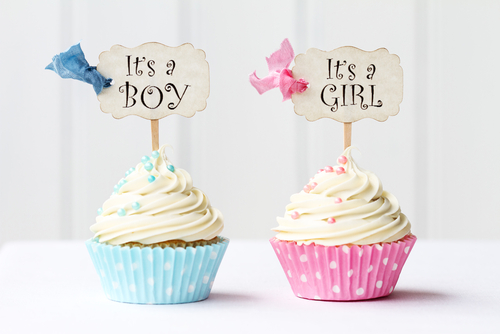Even before you fall pregnant, you can start building your baby and future in your mind: That gorgeous little girl that you’ve always hoped for; Or, that handsome little boy you’ve been dreaming of. You imagine taking your girl shopping, braiding her hair, and what sort of person she’ll become. You imagine taking your boy fishing and to footy, and what kind of man he’ll grow up to become. And then you fall pregnant, and they become even more real, because you’re bringing them into the world.
But then you discover that you aren’t having the girl you’ve imagined (it’s a boy). Or, you aren’t having the boy you’ve dreamed of (it’s a girl). Maybe you learn this through ultrasound, or maybe you discover this at the birth. Either way, your imaginings are now dashed. That baby girl or boy that lived in your mind – won’t exist.
And maybe you tell someone about it, and they dismiss you- because after all, having a healthy baby is the most important thing, right? Or perhaps you don’t tell anybody, because you already know that they won’t understand. Maybe you criticise yourself for it even mattering to you in the first place. So, you sit alone with the painful feelings of sadness and disappointment, trying to make sense of them. Why does this hurt so much? Surely, I shouldn’t be so disappointed? Does this mean I won’t love or bond with my actual baby? Will I be a good mother? And so on…
There are several ways you can help relieve gender disappointment, including accepting feelings, reflecting on your preference, and mourning your loss.
1. Accept your feelings
Upon hearing the gender of your baby, you felt disappointed and sad, because the life you’d imagined is no longer a possibility. When there’s a gap between what you want and what you have, this always causes some type of pain. Additionally, when you tell yourself you shouldn’t feel the way you do, these feelings get bigger, hang around for longer than expected, or you need to escape or avoid them. Other negative feelings also emerge: you wind up feeling guilty and ashamed, because you should just be happy with what you’ve got. The negative feelings seem to grow, which doesn’t help you process your disappointment. One way to get out of this vicious cycle is to accept your feelings. Give yourself permission to feel sad or disappointed, even if you don’t like feeling this way. Tell yourself that you feel this way for valid reasons- the baby you’d imagined is not the one you’re having. It’s normal to feel disappointed in this context, and more common than you think. Whenever you catch yourself feeling sad, disappointed, or frustrated, acknowledge this to yourself (e.g., ‘I feel sad as I was reminded just now that I wanted a baby girl’). Observing and naming what you feel in a non-judgemental and non-critical manner are key steps towards acceptance. Imagine making room for this feeling, breathing into it, and letting it be free to come and go. (Yes, this is easier said than done… and this is where therapy may be helpful).
2. Reflect
Reflect on your preference. What does it mean to you have a boy or girl? Why is it important? Where does this preference come from? And, what had you pictured regarding your ideal baby girl or boy?
When you’re reflecting on this, it can be good to get these thoughts outside your head- discuss with a trusted person, or write them down in a journal. Externalising your thoughts this way can help give perspective and clarity. And when you’re taking perspective, consider the nature of your imaginings: how you imagined the baby girl or boy, and the things you’ll do together are often quite stereotypical. For example: dreaming of getting your little girl dressed up, or seeing your boy perform at certain sports. And the hard part is that even if your baby was your idealised gender, they may not meet that fantasy, as they grow up to be their own person. You may never have gotten to watch your boy play footy- because he’s a bookworm. Or you may never have gotten to dress your girl up- because she’s a tomboy who wants to play in the mud. Consider that some of your gender disappointment may be due to a stereotyped gender image, and this image can drive some of your distress.
3. Mourn
The hard part is that we talk about gender disappointment, we are actually talking about grief and loss. You’ve lost the girl or boy that lived in your mind. And this is why it hurts- you’re grieving your imagined baby and future. There are many types of loss, and not just from a death. When someone passes, there are rites of mourning to help you honour their life, their loss, and to say goodbye. Grief needs to felt and experienced, or it persists. If you are stuck in the loss of your imagined child, it can be helpful to find a way to farewell them and your imagined future. What sort of mourning can be undertaken to honour your imagined future? How can you say goodbye to the baby you’d pictured? It may not be as drastic as having a funeral or ceremony, but there may be small ways that you can acknowledge the loss you feel. Take time to think about what this might involve for you (it is often quite individual), and say your gentle farewell.

